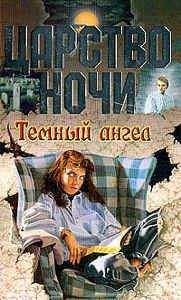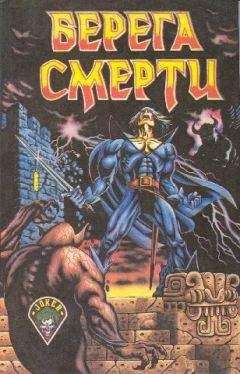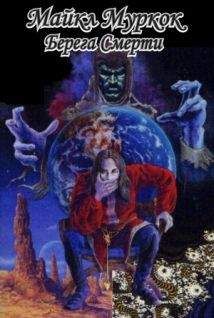Майкл Муркок - Английский язык с М. Муркоком
It was unjust (это было несправедливо).
By creating Man (созданием = создав Человека), the universe had betrayed the old races (Вселенная предала древние расы).
injustice [ɪnˈʤʌstɪs] vultures [ˈvʌlʧəz] squabbled [ˈskwɔbld] exquisite [ɪkˈskwɪzɪt] appreciate [əˈpri:ʃɪeɪt] valued [ˈvælju:d]
Therefore it seemed a dreadful injustice that these wise races should perish at the hands of creatures who were still little more than animals. It was as if vultures feasted on and squabbled over the paralysed body of the youthful poet who could only stare at them with puzzled eyes as they slowly robbed him of an exquisite existence they would never appreciate, never know they were taking.
'If they valued what they stole, if they knew what they were destroying, says the old Vadhagh in the story, The Only Autumn Flower, `then I would be consoled.
It was unjust.
By creating Man, the universe had betrayed the old races.
But it was a perpetual and familiar injustice (но это была вечная и знакомая несправедливость = так было всегда). The sentient may perceive and love the universe (разумное существо может воспринимать и любить Вселенную; to perceive — воспринимать, постигать), but the universe cannot (но Вселенная не может) perceive and love the sentient. The universe sees no distinction (видит = не делает никакого различия) between the multitude of creatures and elements (между множеством созданий и элементов; multitude — масса, совокупность, множество) which comprise it (которые составляют ее; to comprise — включать, содержать, входить в состав): All are equal (все равны; equal — равный, одинаковый). None is favoured (никакой = никто не пользуется преимуществом; favoured — привилегированный, пользующийся поддержкой, благосклонностью). The universe, equipped with nothing (Вселенная, обладая ничем; to be equipped with — оборудованный, оснащенный) but the materials and the power of creation (кроме веществ и энергии сотворения; power — сила, энергия, мощь; creation — сотворение, созидание), continues to create (продолжает создавать): something of this, something of that (немного этого, немного того; something — что-то, кое-что, что-нибудь). It cannot control what it creates (она не может управлять /теми/, кого создает; to control — управлять, контролировать) and it cannot, it seems (и она не может, кажется), be controlled by its creations (быть управляемой своими творениями) (though a few might deceive themselves otherwise (хотя некоторые могли обманывать себя, /думая/ иначе; a few — несколько, немного; to deceive — обманывать, вводить в заблуждение; otherwise — иначе, в ином случае)). Those who curse the workings of the universe (те, кто проклинают действия Вселенной; working — работа, деятельность) curse that which is deaf (проклинают то, что глухо). Those who strike out at those workings (те, кто сражаются с этими действиями; to strike out at — атаковать, набрасываться /на кого-то/) fight that which is inviolate (борются с тем, что несокрушимо; inviolate — ненарушенный, неповрежденный). Those who shake their fists (те, кто грозят кулаками /Вселенной/; to shake — трясти, качать), shake their fists at blind stars (грозят кулаками слепым звездам).
But this does not mean (но это не значит) that there are some who will not try (что есть такие = не осталось никого, кто не попытается; some — кое-кто, некоторые) to do battle with and destroy the invulnerable (бороться и уничтожить неуязвимое; to do battle with — бороться с).
There will always be such beings (всегда будут такие создания; being — cущество, человек), sometimes beings of great wisdom (иногда создания большой мудрости), who cannot bear to believe in an insouciant universe (которые не могут поверить в безразличную Вселенную; to bear — нести, выдерживать /испытания, боль/, мириться).
Prince Corum Jhaelen Irsei was one of these (принц Корум Джаелен Ирсеи был одним из этих = из них). Perhaps the last of the Vadhagh race (возможно, последний из расы вадагов), he was sometimes known as The Prince in the Scarlet Robe (он назывался иногда Принц в Алом Плаще; to be known as — именоваться, называться; scarlet — алый, ярко-красный цвет; robe — халат, мантия, одеяние).
This chronicle concerns him (эта хроника повествует о нем; chronicle — хроника, летопись; concern — касаться, иметь отношение к).
perpetual [pəˈpeʧuəl] sentient [ˈsenʃnt] favoured [ˈfeɪvəd] deceive [dɪˈsi:v] curse [kə: s]
wisdom [ˈwɪzdəm] insouciant [ɪnˈsu:sɪənt] chronicle [ˈkrɔnɪkl]
But it was a perpetual and familiar injustice. The sentient may perceive and love the universe, but the universe cannot perceive and love the sentient. The universe sees no distinction between the multitude of creatures and elements which comprise it: All are equal. None is favoured. The universe, equipped with nothing but the materials and the power of creation, continues to create: something of this, something of that. It cannot control what it creates and it cannot, it seems, be controlled by its creations (though a few might deceive themselves otherwise). Those who curse the workings of the universe curse that which is deaf. Those who strike out at those workings fight that which is inviolate. Those who shake their fists, shake their fists at blind stars.
But this does not mean that there are some who will not try to do battle with and destroy the invulnerable.
There will always be such beings, sometimes beings of great wisdom, who cannot bear to believe in an insouciant universe.
Prince Corum Jhaelen Irsei was one of these. Perhaps the last of the Vadhagh race, he was sometimes known as The Prince in the Scarlet Robe.
This chronicle concerns him.
The Book of Corum (Книга Корума)
BOOK ONE (часть первая)
In which Prince Corum learns a lesson and loses a limb (в которой принц Корум получает урок и теряет руку)
to learn — учиться, узнавать; to learn a lesson /from/ — извлекать урок; limb — конечность)
CHAPTER ONE (глава первая)
At Castle Erorn (в замке Эрорн)
At Castle Erorn dwelt the family of the Vadhagh prince, Khlonskey (в замке Эрорн обитала семья вадагского принца Клонски; to dwell-dwelt-dwelt). This family had occupied the castle for many centuries (эта семья занимала замок многие столетия). It loved, exceedingly (она любила чрезвычайно; exceedingly — очень, исключительно), the moody sea (переменчивое море; moody — легко поддающийся переменам настроения, унылый) that washed Erorn's northern walls (которое омывало северные стены Эрорна; to wash — мыть/ся/, омывать, стирать) and the pleasant forest (и славный лес; pleasant — приятный, милый, радостный) that crept close to her southern flank (что подступал близко к ее /крепости/ южной стороне; to creep — /под/ползать, подкрадываться; to creep-crept-crept; flank — бок, сторона, фланг).
castle [ˈkɑ:sl] pleasant [ˈpleznt] close [kləus] southern [ˈsʌðən]
At Castle Erorn dwelt the family of the Vadhagh prince, Khlonskey. This family had occupied the castle for many centuries. It loved, exceedingly, the moody sea that washed Erorn's northern walls and the pleasant forest that crept close to her southern flank.
Castle Erorn was so ancient (был настолько древним) that she seemed to have fused entirely (что, казалось, слился полностью; to fuse — плавить/ся/, соединяться, сплавляться) with the rock of the huge eminence (со скалой громадной высоты; eminence — высота, возвышенность) that overlooked the sea (которая возвышалась над морем; to overlook — возвышаться /над местностью/, выходить на). Outside (снаружи), it was a splendour of time-worn turrets (это было великолепие старых: «потертых временем» башенок = прекрасные старые башенки; splendour — блеск, пышность, богатство) and salt-smoothed stones (и отшлифованные /морской/ солью камни; to smooth — приглаживать, разглаживать, полировать). Within (внутри), it had moving walls (были подвижные стены) which changed shape in tune with the elements (которые меняли форму в зависимости от погоды; in tune — точно, в тон; elements — элементы; стихия, природные условия) and changed colour when the wind changed course (и меняли цвет, когда ветер менял направление; course — курс, направление, течение). And there were rooms full of arrangements of crystals and fountains (были залы, заполненные композициями из кристаллов и фонтанов; room — комната, пространство, зал; full of — полный, наполненный; arrangement — расположение, приведение в порядок, компоновка; crystal — кристалл, хрусталь), playing exquisitely complicated fugues (игравших изысканно сложные фуги; complicated — запутанный, замысловатый) composed by members of the family (сочиненные членами семьи; to compose — составлять, сочинять /музыку и др. /), some living, some dead (некоторые /из которых еще/ жили, другие умерли; living — живой, ныне здравствующий; dead — мертвый, скончавшийся). And there were galleries (галереи) filled with paintings brushed on velvet (наполненные картинами, написанными на бархате; to brush — чистить щеткой, причесываться; рисовать), marble and glass (мраморе и стекле) by Prince Khlonskey's artist ancestors (предками-художниками принца Клонски; by — через, посредством). And there were libraries filled with manuscripts (библиотеки, полные манускриптов; manuscript — рукопись, манускрипт) written by members of both the Vadhagh and the Nhadragh races (написанных представителями расы как вадагов, так и надрагов; member — член, представитель; both… and… — и… и…, как… так и). And elsewhere in Castle Erorn (в других местах замка Эрорн; elsewhere — где-то в другом месте; где-либо еще) were rooms of statues (залы скульптур; statue — изваяние, статуя), and there were aviaries and menageries (вольеры для птиц и зверинцы), observatories (обсерватории), laboratories (лаборатории), nurseries (детские комнаты), gardens (сады), chambers of meditation (покои /для/ медитаций; chamber — комната, палата, опочивальня), surgeries (операционные), gymnasia (гимнастические залы; ед. ч. — gymnasium), collections of martial paraphernalia (коллекции оружия; martial — военный, воинский; paraphernalia — личные вещи, атрибуты), kitchens (кухни), planetaria (планетарии; ед. ч. — planetarium), museums (музеи), conjuratoria (залы для занятий оккультизмом; conjuration — заклинание, колдовство, чары), as well as rooms (были также помещения; as well as — так же как, кроме того) set aside for less specific purposes (оставленные для менее определенного = не такого специального назначения; to set aside — откладывать /в сторону/, не касаться; purpose — намерение, назначение, замысел), or rooms forming the apartments of those (помещения, служившие покоями тех = тем; to form — придавать форму, образовывать, создавать; apartment — /меблированные/ комнаты, жилище) who lived in the castle (кто жил в замке).



